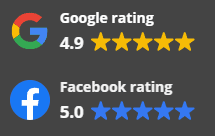
To make the interview process as standard and as fair as possible, interviewers opt to undertake Competency-based interviews. More and more large organisations are using this technique when multiple managers are interviewing for the same position.
Competency Based Interviewing can sometimes be referred to as Structured Interviewing or Evidence-Based Interviewing and there are two common approaches; one is to ask a series of questions, targeted at each of the core competencies while the other involves in-depth probing questions with the interviewer actively listening for clues which provide evidence that the candidate possesses the necessary skills.
The word competency is widely used in business environments and refers to the skills that are necessary to achieve an effective performance level in the job. Every job will have a set of key competencies, some of which are essential and others desired and all are required to do the job properly.
Examples of Common Competencies
- Communication skills
- Delivering Results
- Interpersonal Skills
- Use of Initiative
- Planning and Organising
- Analytical Thinking
- Strategic Thinking
- Building relationships
- Developing Others
- Team Work
When preparing for a Competency Based Interview the experienced interviewer will draw up a list of questions relating to each competency and all directed towards discovering if the candidate has the necessary skills.
Questions asked in Competency Based Interviews
The most common types of questions asked in Competency Based Interviews are behavioural-based. These are also called Situational and are used as a tool to discover how your behaviour in a previous role or situation can contribute to your performance in the job being recruited for.
These will usually start with phrases such as:
- Tell me about a time when you….
- Give an example of a situation where….
- Describe a scenario….
Your interviewer may also choose to ask direct questions such as:
- How would you rate your communication skills?
- Describe your management style
- What is your leadership philosophy?
When you have demonstrated and proven the competencies you are being asked about within a work environment. If you cannot think of a specific example at work has there been a time outside of work e.g. at school/university, during voluntary work or within your leisure activities (e.g. a sports team) that you can utilise? If possible, try to avoid describing how you ‘would’ approach a situation – only do this is if you cannot think of real life examples. An excellent way to structure your answers to competency-based questions is to use the STAR technique.
STAR Technique:
- ituation Explain which role you were doing at the time and the situation you found yourself in
- ask What were you aiming to achieve from the situation?
- ction What did you do? Why did you do it? What were the alternatives?
- esults What was the result? What did you achieve through your actions and did you meet your objectives?
This is where your answer can really shine to an interviewer if you detail the result in a quantifiable way e.g. money saved (either a £ amount saved or a % saving), time saved, increased output/productivity, reduced error rate, customer satisfaction, repeat business etc.
For further advice why not get in touch with one of our Recruitment Specialists today? We regularly share helpful tips and advice across our social media, so be sure to follow us on LinkedIn, Facebook and Twitter to keep up to date!


